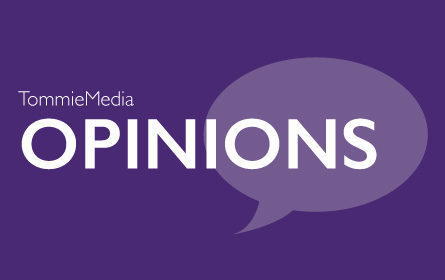I heard from a few friends studying communication and journalism about a recent “unplugged” assignment and became interested in the concept and the potential for understanding myself and the technology-reliant culture we live in today. The premise of this assignment was giving up technology for a specific amount of time and observing the consequences. With this in mind, on Saturday, March 12 I unplugged myself from all electronics for 24 hours.
9:30 a.m.: Rising to the sound of my alarm and completely forgetting about my project, I reached for my phone and began checking social media. After answering a couple text messages and liking a few Instagram posts, I realized I was supposed to be unplugged that day. The first thing I’d done that morning was check my phone, and already I began to realize the deep-rootedness of routine-induced dependence on electronics.
10:15 a.m.: Sitting in front of fried eggs and bacon, I mourned the fact that I could not Snapchat a picture of my breakfast. My eggs were on point. The ridiculousness of that thought did not hit me until later. Was it really necessary to let people know I’d had breakfast that morning? Probably not.
11 a.m.: I got into my friend’s car, and she asked me to pull up directions on my phone for St. Therese nursing home. After telling her I couldn’t because of a project I was doing, I ended up holding her phone, on which she had pulled up directions for said nursing home. I tried to convince myself I was not cheating.
2 p.m.: After volunteering at St. Therese with some friends and grabbing some lunch on the way back, I realized time had flown quickly. Without my phone in my back pocket to constantly check the time, I’d been able to be more engaged in what was happening to me right then and there.
2:30 p.m.: I asked my roommate to play a song on her phone because it had been stuck in my head all day. Was I cheating? Probably, but the song was good.
3 p.m.: FOMO hit me like a train. For those unfamiliar with this term, it stands for “fear of missing out” and is exactly what it sounds like. As I sat in my living room with my roommate, I could not help but entertain the thought that somewhere something great could have been happening and I had no way of knowing because my phone was switched off.
3:30 p.m.: I went for a walk in the sun with my roommate. We spent good quality time together, and with the absence of side conversations I normally have on my phone, I was able to give her all my attention, which – I realized – was a much more satisfying way of enjoying our friendship.
5 p.m.: I heard myself saying the phrase, “If I had a dollar for every time I’ve wanted to Snap something today, I’d be out of student debt.”
6 p.m.: Four good friends accompanied me to see the play “Into the Woods” at St. Kate’s, Cell phone use during a play is against etiquette, so being deprived of mine was not much of a sacrifice.
10 p.m.: As we returned to my apartment to spend the rest of the evening together, FOMO was still lingering in the back of my mind. However, I ended up having the best night I’d had in months, because I was able to be completely invested in good friends who had made an effort to see me that day, even though I had not been reachable on my phone.
12 a.m.: Honestly, I ran to my room to get my phone.
After having had time to reflect on my experience going unplugged, I can say that ridding ourselves of technology in this day and age would be silly and impractical. Technology, like many human advancements, is valuable if used reasonably. However, going unplugged revealed to me the unhealthy false sense of connectedness we get just by having access, mainly induced by social media. We receive stimuli from different situations and different people throughout our day, and our minds are constantly engaged in multiple things, making it difficult to truly be present in our physical life. This was emphasized by the FOMO I experienced, as I was often feeling disconnected.
Still, this was a valuable and liberating project for me because it helped me recognize the value of technology and its unhealthy hold on me.
Letizia Mariani can be reached at mari8259@stthomas.edu.




